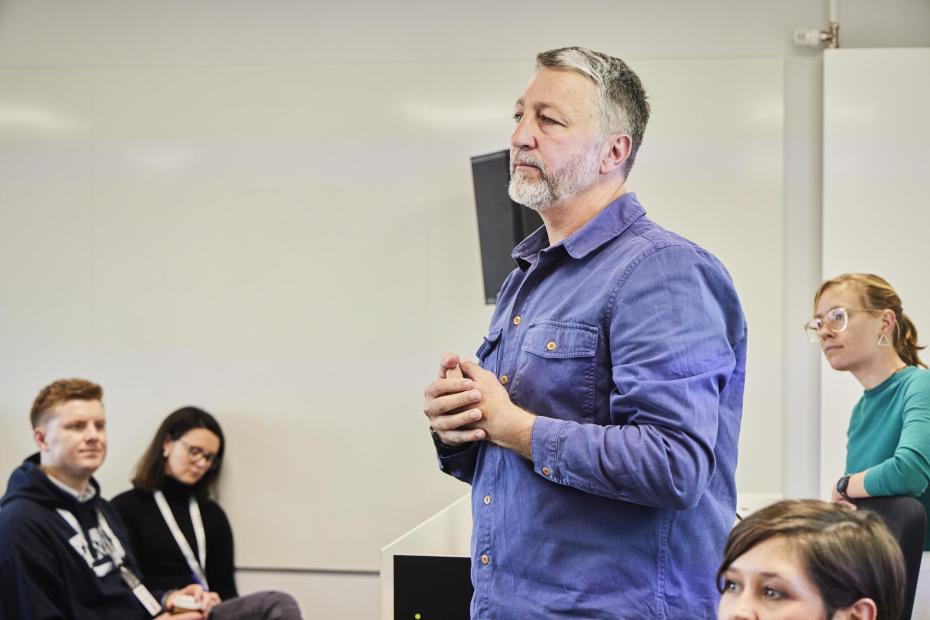
Harnessing digital opportunities through blended learning

The Covid-19 pandemic forced higher education providers to shift their attention to online learning – some for the first time. But three years on, universities are still struggling to find the right balance between online and face-to-face education offerings.
At a session for THE Digital Universities UK 2023, Simon Nelson, CEO of QA Higher Education, discussed the organisation’s fresh educational vision, as well as some of the barriers still in place for universities making the digital transition.
QA operates in partnership with seven UK universities, recruiting to and teaching foundation, undergraduate and postgraduate programmes via a range of partnership models delivered on its partners’ main campuses and across QA-managed branch campuses in London, Birmingham and Manchester. Despite being known for delivering face-to-face education on behalf of its partners, QA is planning to build powerful new blended and all-digital learning experiences, Nelson explained.
This “optimally blended portfolio” of undergraduate and postgraduate programmes, “will be designed with employability at its core, targeting in-demand professions, starting with a bachelor’s in business and marketing,” Nelson told the audience.
“Degree education at its best is a transformative experience,” he said. “It supports human flourishing and sets students up with the confidence and know-how for successful careers and lives. But despite strides in widening access, many students are still put off by the perception that degrees are too theoretical and offer uncertain returns on their investment.”
QA believes that more needs to be done to design degrees that are “aligned with the reality of students’ lives today and in the future” Nelson said. QA plans to create a curriculum design that balances sociological, creative, technical and business perspectives and supports the development of digital leadership.
QA’s new approach will offer “optimally blended degrees, with teaching and learning optimised according to learners' needs”, combining face-to-face study in city-centre campuses with flexible online study that can be scheduled to fit around work or caring responsibilities, Nelson said. “Precious on-campus time…[will be] dedicated to delivering maximum pedagogic value one-to-one and in teams”.
“We’re using radically improved digital interfaces and tools to provide continuity between on and offline modes, end-to-end student support, and preparation for progress into today’s hybrid working world,” Nelson added. “Our new approach is non-traditional, aimed at equipping students from all backgrounds for work in a non-traditional world.”
Drawing on his past experiences leading digital projects for the BBC and founding the education platform FutureLearn, Nelson emphasised the power and inevitability of digital learning, stressing that universities were wasting time and resources by not making more of it.
Artificial intelligence and emerging machine learning tools such as Chat GPT could be “powerful new additions” to higher education, he said, but universities were notoriously “slow” to adopt many of the new tools available.
At the same time, he stressed that leaders shouldn’t feel concerned about the future. “I don't think we should get obsessed with amazing universities disappearing, there will always be demand.”
Nelson concluded that the digital transformation of higher education would continue globally, and the answer to what would happen to universities was “always somewhere in the middle”.
For these reasons, “it’s criminal not to be harnessing the new opportunities technologies like these are offering. That’s what I think universities are funded [for] and that's why I think they should be accelerating more on digital than they are now,” he concluded.
Find out more about QA Higher Education.

